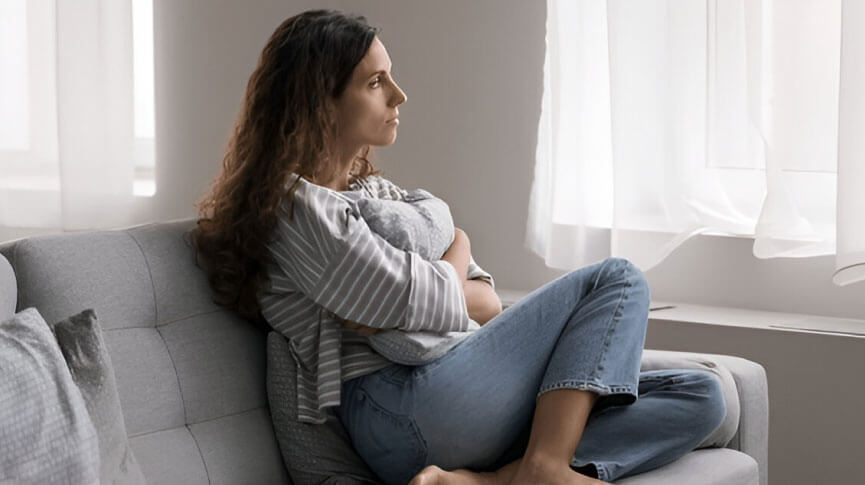
Mobility issues can affect every part of life—including sex. When it’s harder to move, bend, or stay in one position, intimacy can feel stressful or painful. But connection is still possible. Visit our DOXXES store on SW Freeway/Chimney Rock to explore tools and tips that make pleasure more accessible.
What Are Mobility-Related Sexual Challenges?
These are difficulties with sexual activity caused by limited movement, pain, or stiffness. They can result from:
- Injury or surgery
- Chronic pain (like arthritis or fibromyalgia)
- Neurological conditions (like stroke or MS)
- Aging or reduced strength
There are three main types:
- Superficial pain (surface-level discomfort)
- Deep pain (from joints, muscles, or nerves)
- Provoked pain (triggered by specific movements or positions)
Why Do These Challenges Happen?
Psychological factors:
- Anxiety about performance or pain
- Past trauma or medical fears
- Relationship tension or communication issues
Physical factors:
- Infections or chronic inflammation
- Hormonal changes (e.g., menopause)
- Pelvic floor tightness or scarring
- Structural changes from injuries or surgery
Most people deal with more than one cause. Mind and body often work together—so does the healing process.
Examples and Identifying Triggers
You’re not alone. Here are real examples:
- A person with hip surgery struggles to bend comfortably
- A partner with fatigue can’t stay active for long
- Someone with chronic back pain avoids certain positions
- A person feels pressure because foreplay takes too much energy
To track triggers:
- Keep a diary: note pain, mood, and energy before and after sex
- Test different lubes, positions, or props like cushions
- Try shorter sessions or breaks to manage energy
Who Is Affected?
Anyone with limited mobility can experience sexual challenges—regardless of age or gender. For example:
- Men may deal with erectile dysfunction or pelvic pain
- Women may feel muscle tension or dryness
- Partners may feel unsure about how to help
Mobility issues can impact self-esteem, but communication builds connection. You don’t have to choose between comfort and closeness.
How a Sex Therapist Can Help
- Review your physical history and emotional needs
- Offer solutions for intimacy after surgery, stroke, or trauma
- Suggest gentle movement and breathing exercises
- Guide you through ways to reconnect with your partner
They help remove shame and replace it with understanding and practical tools.
Treatment and Coping Strategies
What can help:
- Therapy: Individual or couples therapy to reduce fear or shame
- Pelvic floor therapy: Strengthens muscles and reduces pain
- Mindfulness or biofeedback: Helps you relax and enjoy the moment
- Intimacy coaching: Learn new ways to give and receive pleasure
These aren’t just for sex—they improve body awareness, trust, and joy.

How DOXXES.Love Can Support You
We offer:
- Water-based lubricants for sensitive skin
- Pelvic floor trainers to rebuild control and comfort
- Soft, body-safe vibrators that don’t need complex movement
- Position aids and prostate massagers for gentle support
Our products are made for real people—no judgment, just solutions. Each item includes easy instructions and cleaning tips.
Communication Tips for Couples
Talking about sex and pain is hard—but healing starts there.
- Use “I” statements like: “I get anxious when I feel pain”
- Choose private, stress-free times to talk
- Focus on teamwork, not blame
- Read guides or watch tutorials together
- Ask for help when intimacy becomes stressful
The more you share, the more supported you’ll feel.
Visit Us at DOXXES on SW Freeway/Chimney Rock
Stop by our welcoming, judgment-free space. We offer:
- Private browsing
- Personalized recommendations
- Adaptive toys and tools for all mobility levels
Whether you need information, lubrication, or a lift pillow—our team is here for you.
Conclusion
Your body may have changed—but your ability to feel pleasure hasn’t disappeared. By understanding mobility-related sexual challenges and using the right tools, you can rediscover intimacy that feels safe, enjoyable, and empowering.
Come visit DOXXES on SW Freeway/Chimney Rock where your needs are respected and your comfort matters.
FAQs
- What are mobility-related sexual challenges?
Trouble with movement, pain, or fatigue during sex due to physical limitations. - Who might experience them?
Anyone with injury, disability, arthritis, or chronic fatigue. - Can sex still be enjoyable?
Yes! With adaptations and support, intimacy can be deeply satisfying. - What’s available at SW Freeway / Chimney Rock?
We offer flexible toys, wedges, and tools designed for all movement ranges. - How can I reduce strain during intimacy?
Use pillows, change positions, go slower, and take breaks. - Can I use mobility aids during sex?
Absolutely. Grab bars, soft restraints, or adaptive furniture are helpful. - Is all pain a signal to stop?
Not always—but it is a sign to pause, communicate, and adjust. - What if I feel embarrassed?
You’re not alone. Therapists can help normalize and guide you. - Are there guides or workshops for adaptive intimacy?
Yes. We offer resources, and many online platforms now cover this too. - Can I shop privately at DOXXES?
Yes! Our team at SW Freeway / Chimney Rock respects your privacy and offers discreet packaging.
